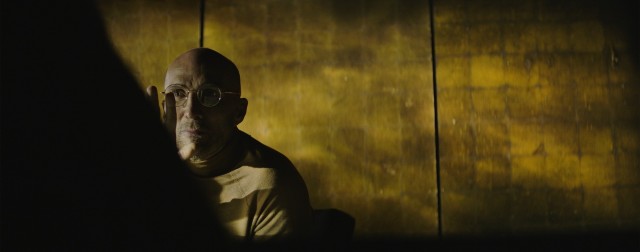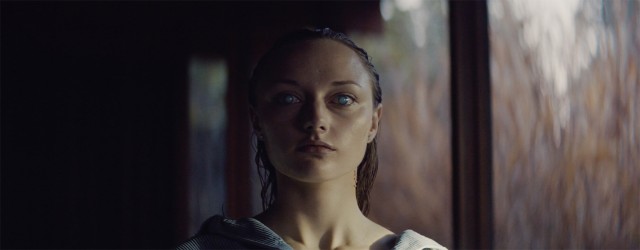W
hile the romanticism of creating artificial intelligence in man’s image is hardly new science-fiction territory, Stuart Langfield’s LOOP is a gripping reimagination that weaponizes love. What can only be described as a Shakespearean AI love story akin to Ex Machina, LOOP is a slick atmospheric and story-driven production that probes the emotional capacity of an AI woman. Beautifully shot with subtle visual effects, Langfield draws from personal experience and the arts to create a film that looks and feels like the masterpiece its character strives for.
Past the impressive production values, admittedly, LOOP is borderline pretentious and a film that you really need to lean into to appreciate. Set in the middle of the 21st century, it centers around a reclusive, retired tech company CEO’s attempts to teach AI how to experience and process human emotions – because who else would invest in such an egotistical money pit of an endeavor?

Michael J.Rogers as retired Tech CEO David Hinton in Stuart Langfield’s LOOP
While the dialogue at times gets a bit snobbish and harks on Richard Wagner’s famous opera tragedy Tristan und Isolde, it unapologetically sticks to its guns. In comparing the artistic process to building the human experience, it’s easy to see why Langfield’s screenplay is heavy-handed in poetic dialogue. But it’s not cheesy by any means and while it has the potential to be nauseating, the stellar performances and slick execution wonderfully sticks the landing.
Though the storyline follows an AI woman (Beca played by Valeriia Polishchuk) pushed to her emotional limits in a series of tests, the film is really about coping with loss. At its core, LOOP is about letting go and moving on, one of the hardest things that real humans must learn in their own lives. And just like a child, it takes time for Beca to unravel these complex emotions, which is why the film’s inspiration should come as no surprise.
“I started to question whether replicating an emotive incident could result in a similar reaction every time”
Langfield has a young son and so began exploring the film’s concept while observing his own child discover and display new emotions as he began interacting with others. “He was learning to process the feelings of anger, joy, disappointment, sadness, and I found this progression of maturity fascinating and insightful”, Langfield explains to Short of the Week. “I started to question whether replicating an emotive incident could result in a similar reaction every time and, if so, could we program a machine to feel?”

Valeriia Polishchuk as Beca, the AI pushed to its limits by retired Tech CEO David Hinton
Throughout LOOP’s impressive production there’s an incredible attention to detail working to provide nuance to an exhausted sci-fi premise and make it feel more unique. “We really wanted the short to feel like it inhabited a world beyond what you see on screen, so we took an incredibly detail-oriented approach with the film”, Langfield reveals as we discuss his approach to production. “Every decision, from the Wagner references, colour of wardrobe and the hidden messaging within the braille was mapped back to core components and themes of the story. Everything is there for a reason. A lot of that might be obscured to the average viewer, but it gave us a lot of joy to implant all those elements within the short”.
A heady mixture of high-intensity moments combined with a sleek imagining of technology, through delicate visual effects, LOOP is a short that sci-fi fans are going to love. Langfield is currently busy putting together a TV concept based on similar themes from LOOP and he’s just finished writing his next short titled Children of God which he hopes to turn into a feature-length film.

 Chelsea Lupkin
Chelsea Lupkin